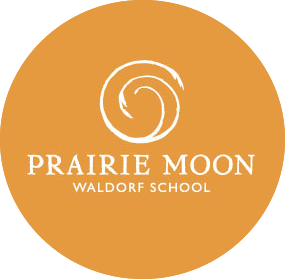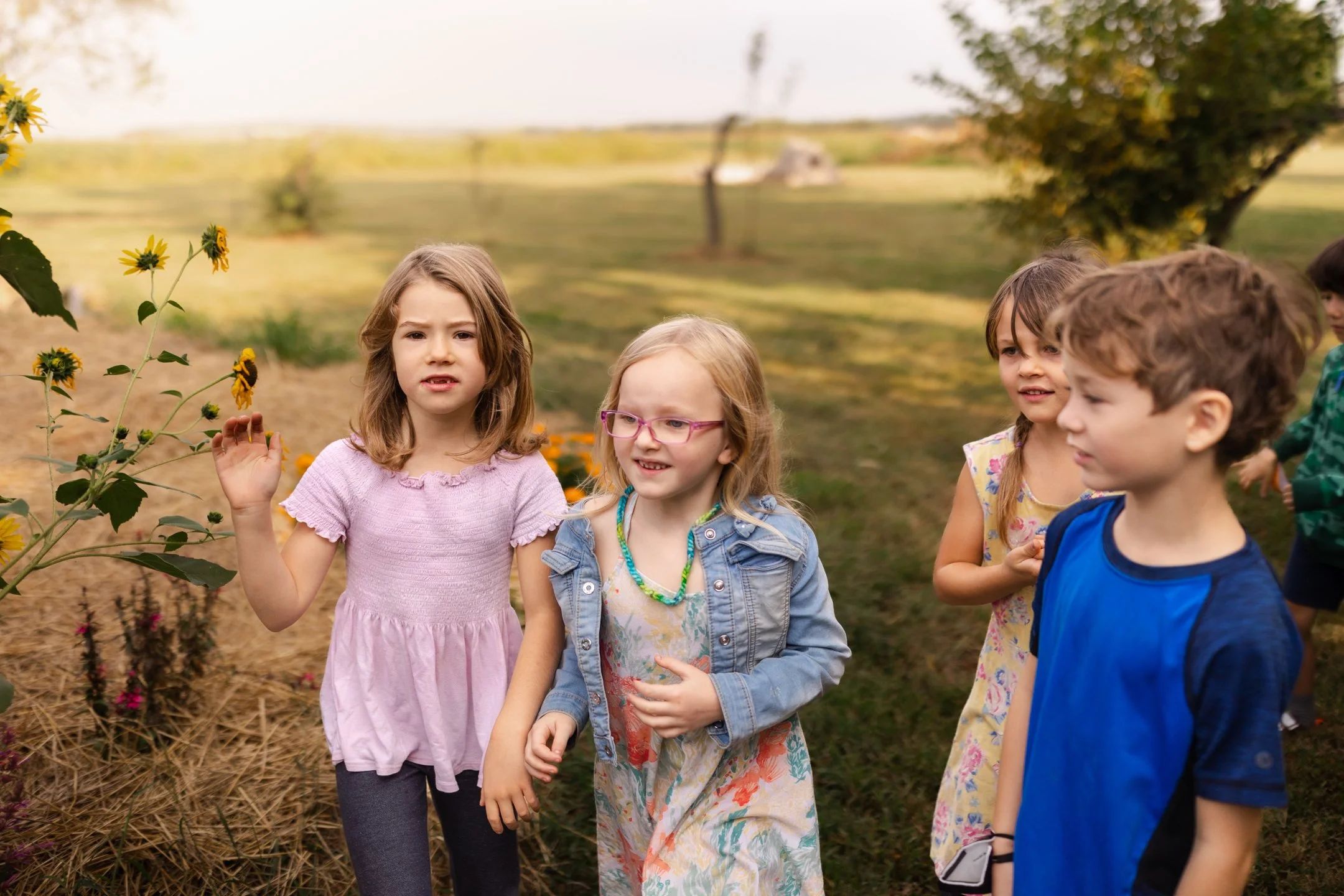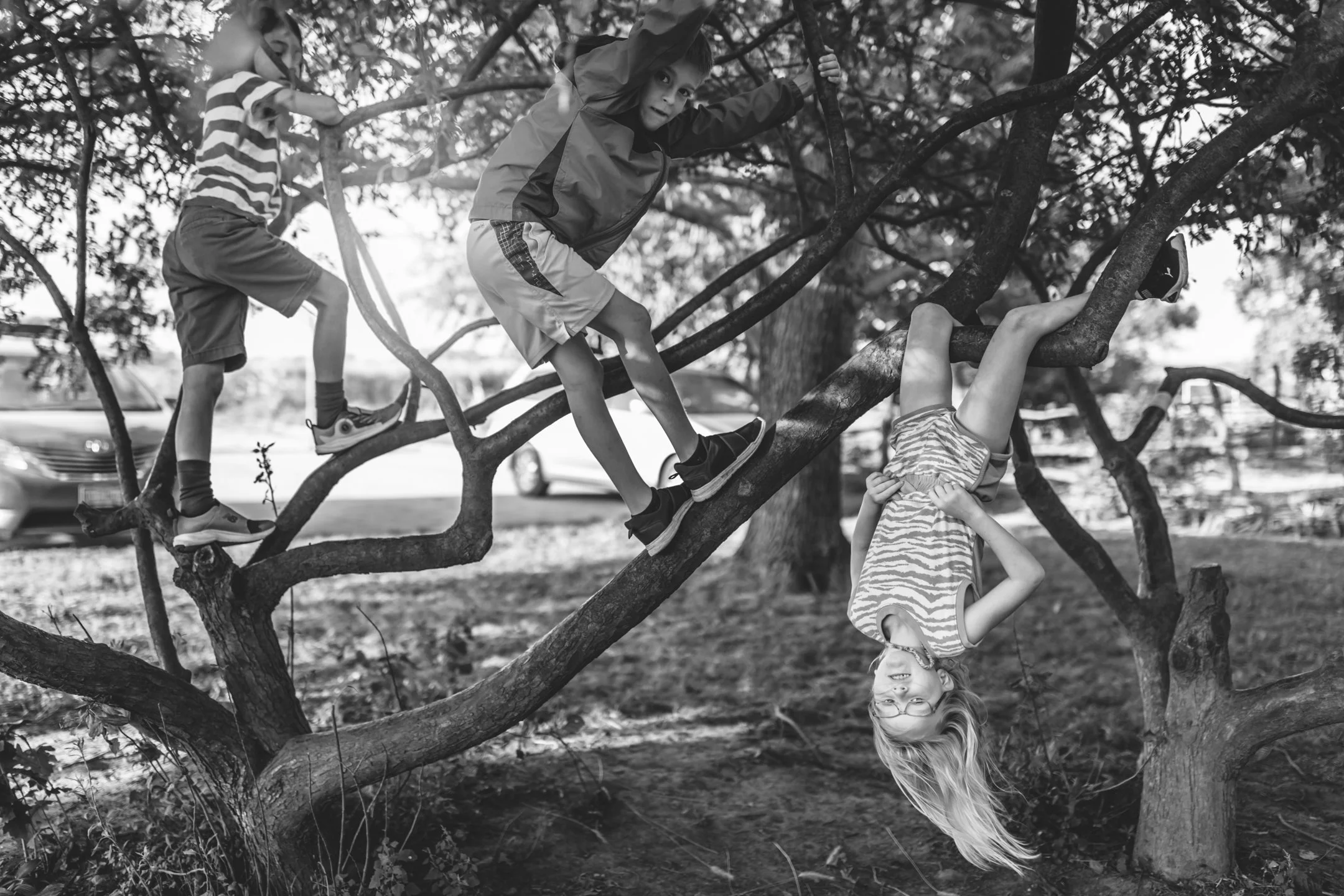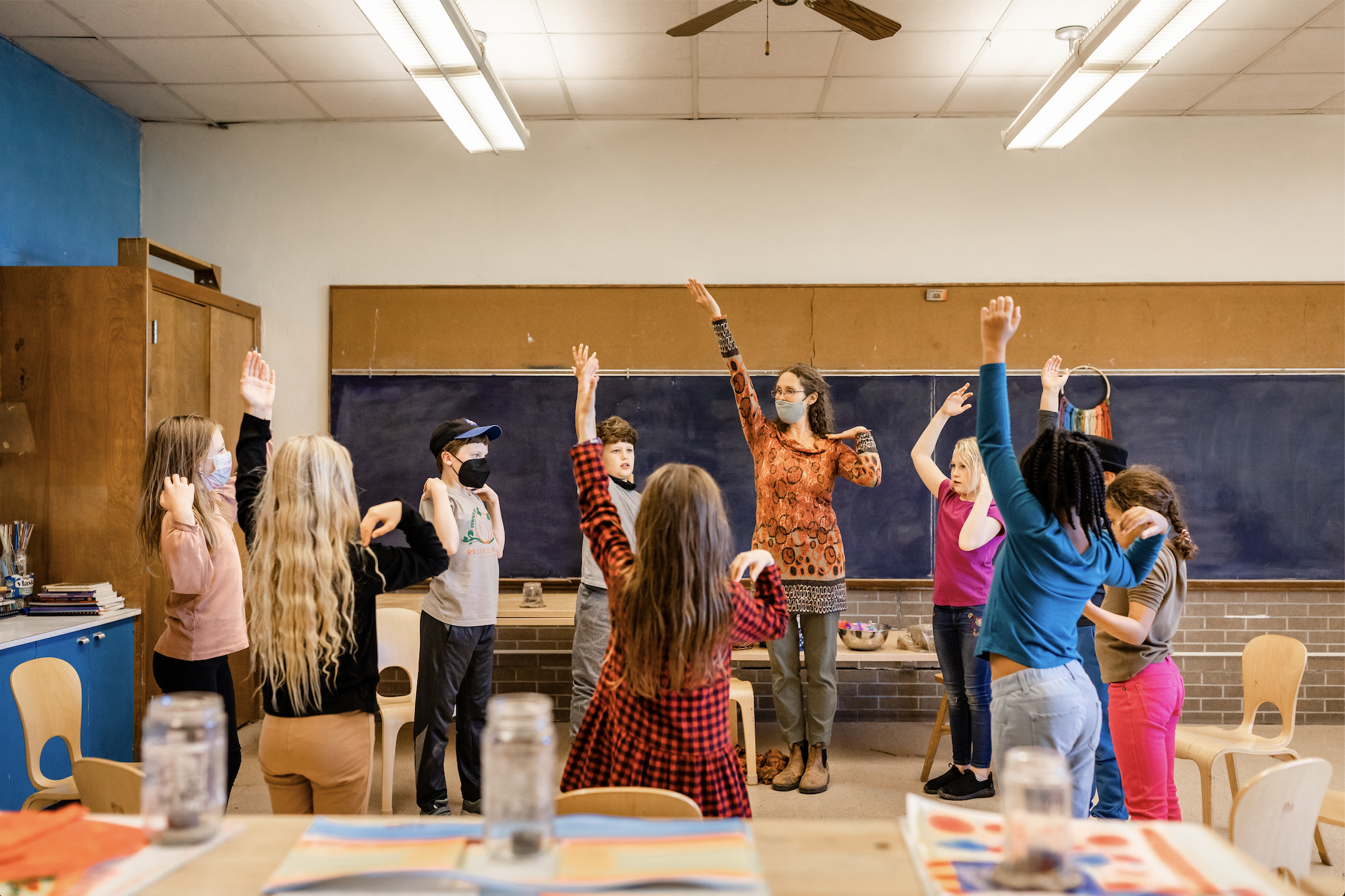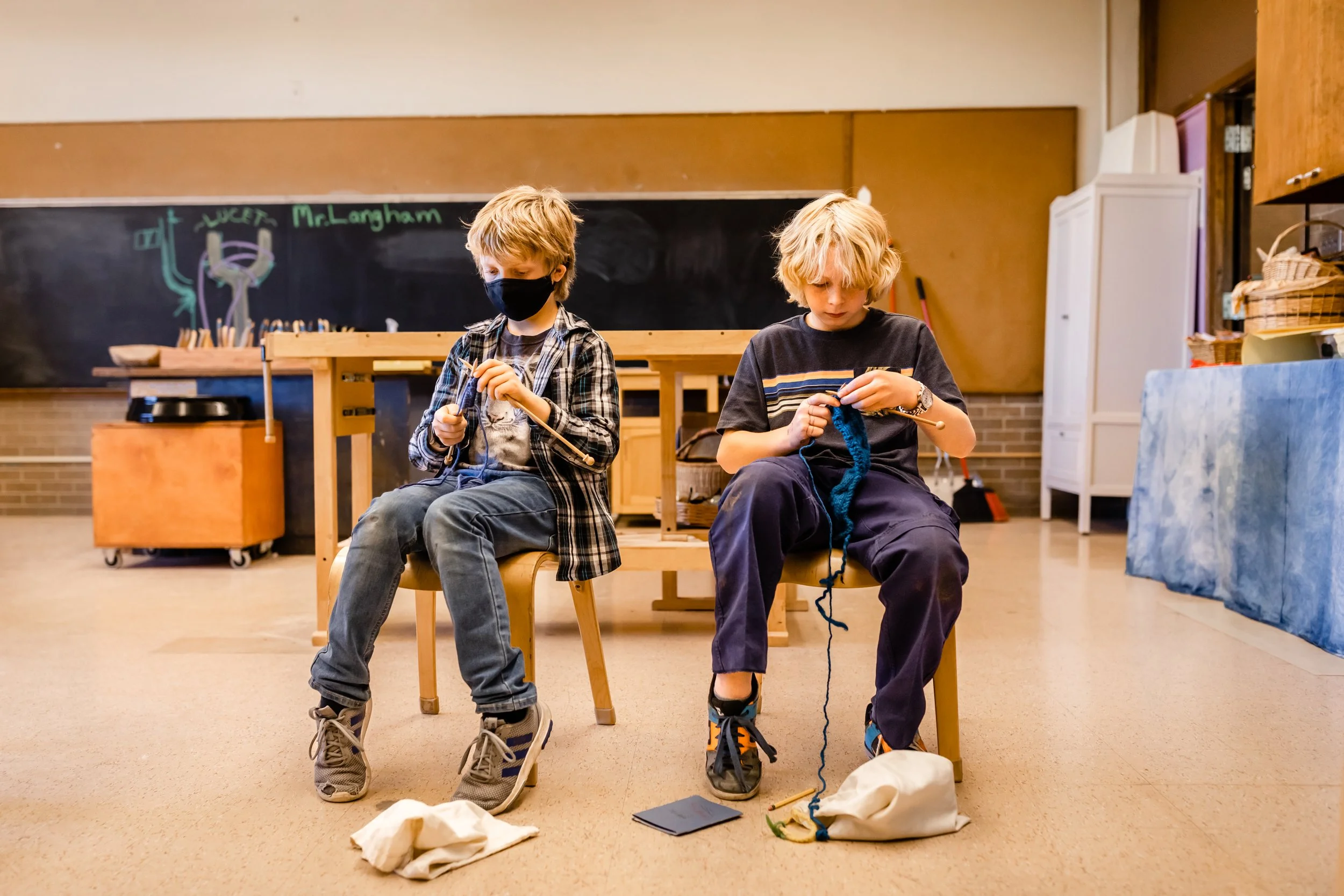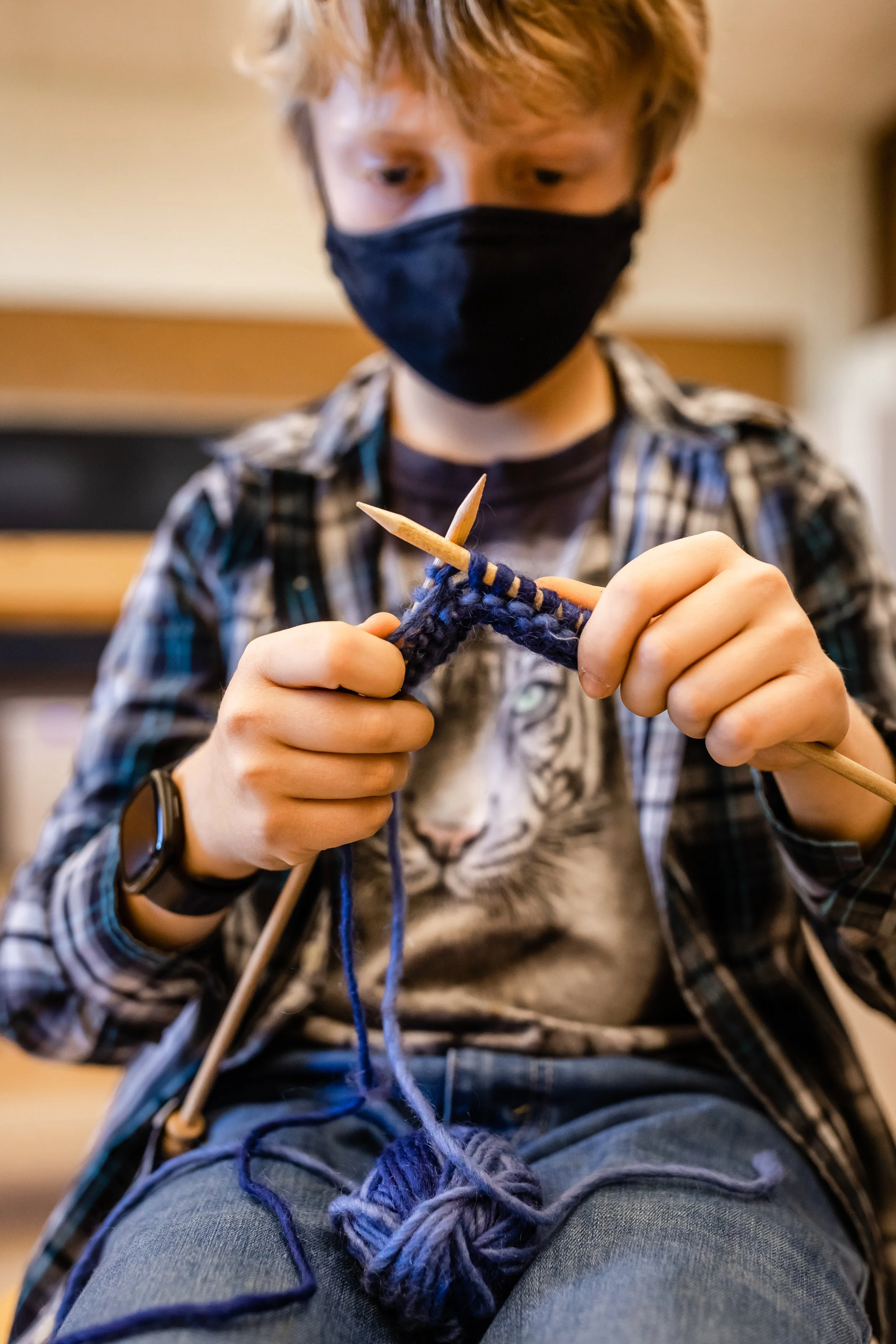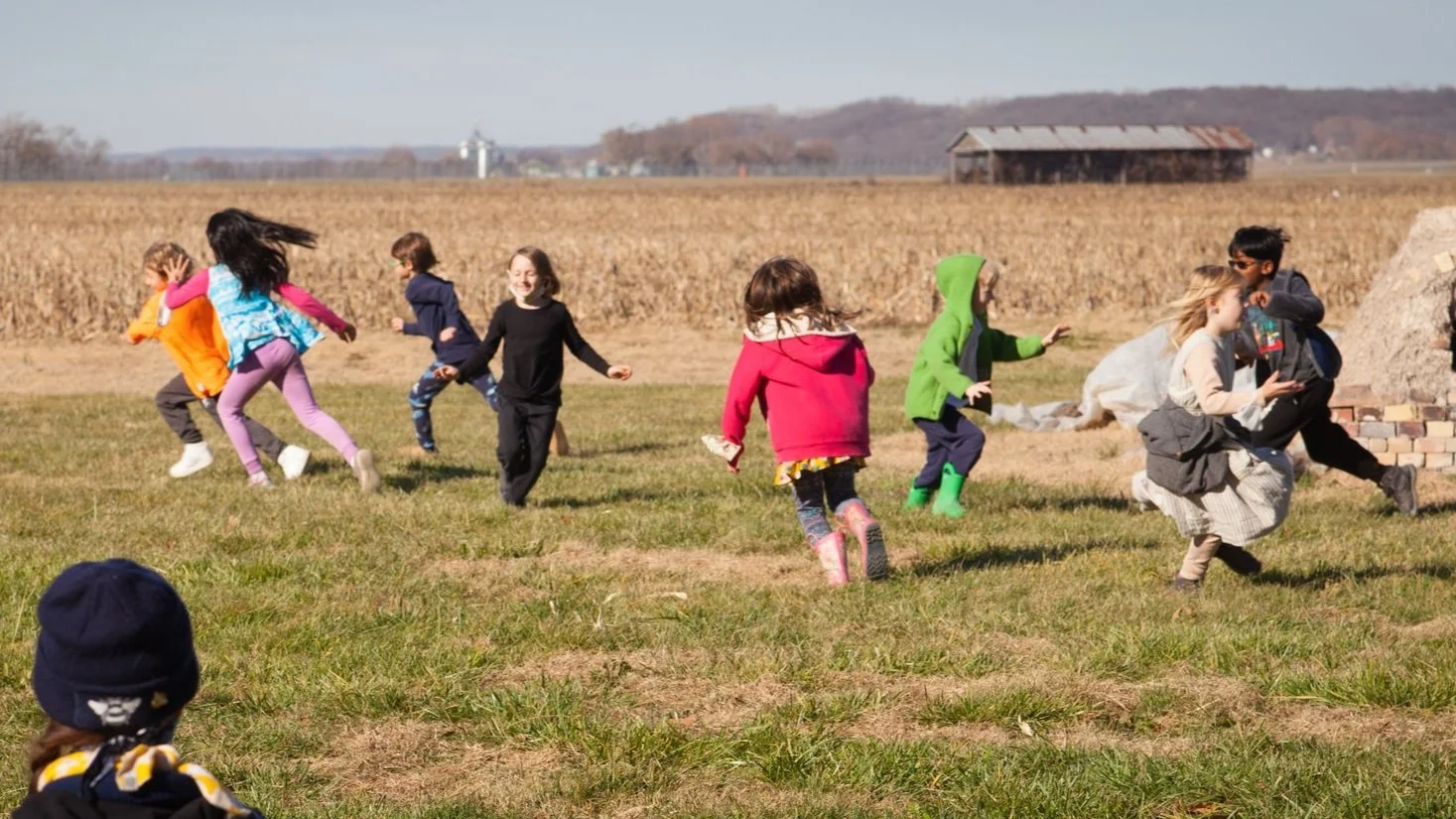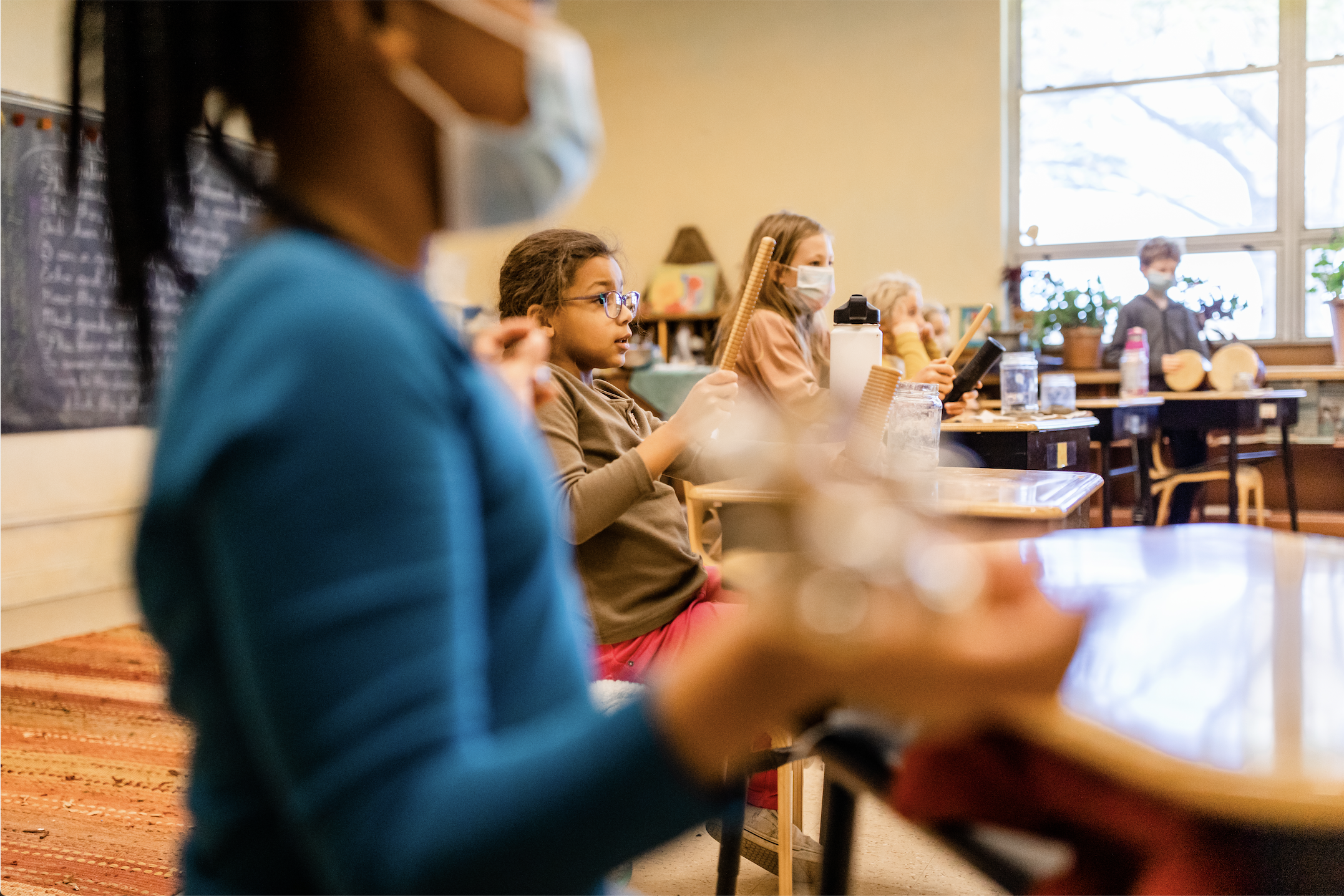
ELEMENTARY SCHOOL
Grades 1st-5th
Waldorf Schools take a developmental approach to education and the curriculum is designed to meet students at the specific stage they are in. Students experience a continuity of relationships with their core teacher, often referred to as looping, in addition to their specialty teachers. This long-term relationship supports a rich social dynamic in the class, and gives the teacher deeper understanding of each student’s strengths, challenges and developmental milestones. The specialty classes aid in providing new perspectives.
Grade 1
Grade 1 is all about imagination. While the teachers meet their development with the class materials, they also address it by encouraging healthy habits: proper posture while sitting, maintaining a clean desk, and treating others with kindness and compassion. Arithmetic, writing, and Mandarin are taught through dramatization, visualization, and reenactment. Knowledge and skills are rarely imparted through call-and-response memorization, for a young child learns best when they are living what they learn. Stories, linguistics, and numbers are often taught in a game; step into the classroom and you will often see desks pushed to the side so students have space to move and grow while they learn. Free play is key for the development of young children and so, whether in the classroom in the afternoon or in the morning for recess, exploration of the world around them is central to the first grader’s experience.
The first graders are welcomed on the first day of school in an all-school gathering called “The Rose Ceremony.” Each first grader receives a rose from a student in the eldest class.
Grade 2
Grade 2 is a time of awakening. Seven and eight-year-olds are waking up to the duality of human nature: the animal impulses and the saintly aspirations. With a solid foundation in counting from first grade, second graders begin to learn times tables and more complicated mathematical operations. Likewise Mandarin, music and other subjects build on the groundwork of first grade with increased complexity in the second grade curriculum.
In addition to acting as a vessel for traditional academic subjects, the singing, dancing, form drawing, painting, and other artistic activities help to build fine motor skills and develop an awareness of the body as the child begins to look outward.
Grade 3
Grade 3 is a time of growing awareness of the surrounding world. Creation Myths introduce them to ideas about the origins of the world around them, and newfound community responsibilities, such as the collection of compost, take them out of early childhood and out into a wider world full of opportunities and exploration.
Music and Mandarin education continue, and cursive writing is introduced. The third graders’ study of mathematics helps them channel that new outward focus. The teacher introduces units of measurement--inches and feet, weights and volumes--so that the students learn math through the quantification of their immediate surroundings.
The new measuring skills culminate in the design and construction of a structure on campus (with the help of the parents). Throughout the year third grade often goes on field trips to a farm, through this experience they are able to solidifying a new sense of independence and draw them out into the world that awaits.
Grade 4
Grade 4 is when the child emerges into the world and leaves early childhood. The focus of the year is developing a sense humankind’s relationship to the world.
This focus takes the students on a journey of exploration through the three realms of the natural world: minerals, plants, and animals. The study of geography begins, mapmaking is learned, and the study of fractions becomes a key part as measuring the world around us requires more than whole numbers. Norse Mythology, rich with stories of moral choices, is studied at length for those lessons are important in the development of a young child just realizing their place in the world.
They study both the Indigenous people and first settlers of Kansas, and they will typically conclude the year with an exploration of their own, a camping trip.
Grade 5
Grade 5 is the golden age of childhood. The years of young childhood behind them and the years of puberty still ahead, the fifth graders study the ideals of classical Greece and other ancient civilizations in order to build a foundation for the periods of tumult they will soon study and the years of change they will soon experience in their bodies.
In math and English the fifth graders learn to break down larger units into its component pieces. They become comfortable with fractions and the grammatical structure of sentences. Mental math is done daily, and note-taking and proofreading skills are introduced.
This year’s studies culminate in the class participating in a Greek pentathlon. This competition of speed, form, and grace marks the end of their study of ancient worlds and of their childhood, and prepares them for the next big steps in their own development.
Our Specialty Classes:
Handwork
Handwork brings a balance between intellectual and movement activities, allowing students to experience the struggle, joy, and care required in the creative process. Through the creation of projects they are also able to build confidence in themselves and the things they create as they see them evolve. As the children grow so do their handwork experiences. Starting with finger crochet, simple hand sewing, and basic knitting the children build their handwork skills and experiences before advancing through to cross-stitch, 4 needle knitting, crochet, and sewing on a treadle sewing machine.
Mandarin
All students in the grades program participate in Mandarin lessons twice a week. In the lower grades, all work centers around movement, singing, storytelling and games with some illustrative work in notebooks. The goal is to build vocabulary and an ear for the language as it is primarily used orally in simple situations. Cultural aspects of the language are underscored in all activities, with occasional celebrations of particular festivals, especially involving food. The upper grades see an increase in conversational work and an acquisition of the basic tenets of grammar. They begin to read texts and write in the language. In all grades, the material presented closely parallels the Main Lesson blocks taught by the class teacher. By the end of our program they are able to converse confidently with others and form not only a connection to Mandarin, but to the culture it comes from.
Movement
Physical movement is an essential element of Waldorf education. Children need the ability to move around, not only to develop their physical body, but to also be able to see into how their body works and moves. Movement classes are designed to give each student the opportunity to understand how their bodies move, and learn to inhabit them with confidence that will carry with them into their adult lives. Classes are filled with activities that meet each student in their stage of development; these activities help to build a solid foundation in balance, dexterity, coordination, strength, and spatial body awareness to build student’s confidence in their bodies.
Music & 5th Grade Strings
Music is an integral part of our school. Music classes are designed to meet the student at the developmental stages the are in. Starting in the first grade all students participate in learning the pentatonic flute, and then in 5th grade begin participation in strings class. The inclusion of music in is a key part to student’s development. Through music, the students engage their heads, hands and hearts fostering an essential connection through the impact music has on the body, soul and spirit. Creating music requires every part of the body. The physical body operates the instrument, the mind carries the beat, and the heart creates the harmony and melody. Engaging every part of the body, having each part work in harmony, music is essential experience. In music class, they not only engage themselves in the music but also learn to create music with others. Everyone has a unique approach to music, and working together allows them each to take unique aspects of themselves to create a harmony with others. In Prairie Moon, music is everywhere. Students engage in music not only in music classes, but also with their teachers between and during lessons as they use music to introduce concepts and form connections with students.
Looking to Start the Enrollment Process?
Grades School Schedule:
MONDAY - THURSDAY: 8:30am - 3:20pm
FRIDAY: 8:30am - 1pm
ARRIVE BETWEEN 8:10-8:15am
TEACHERS GREET THEIR STUDENTS BEGINNING AT 8:20am
